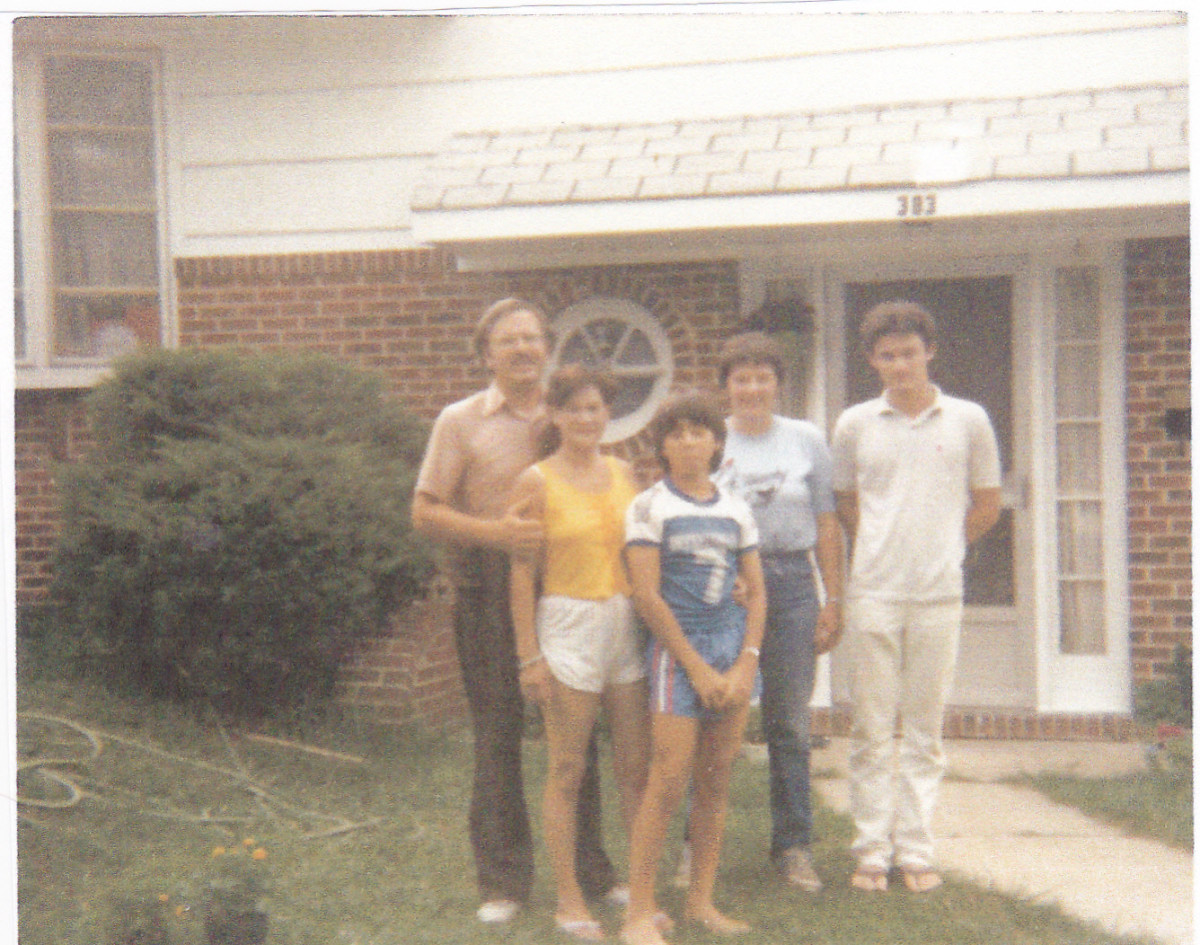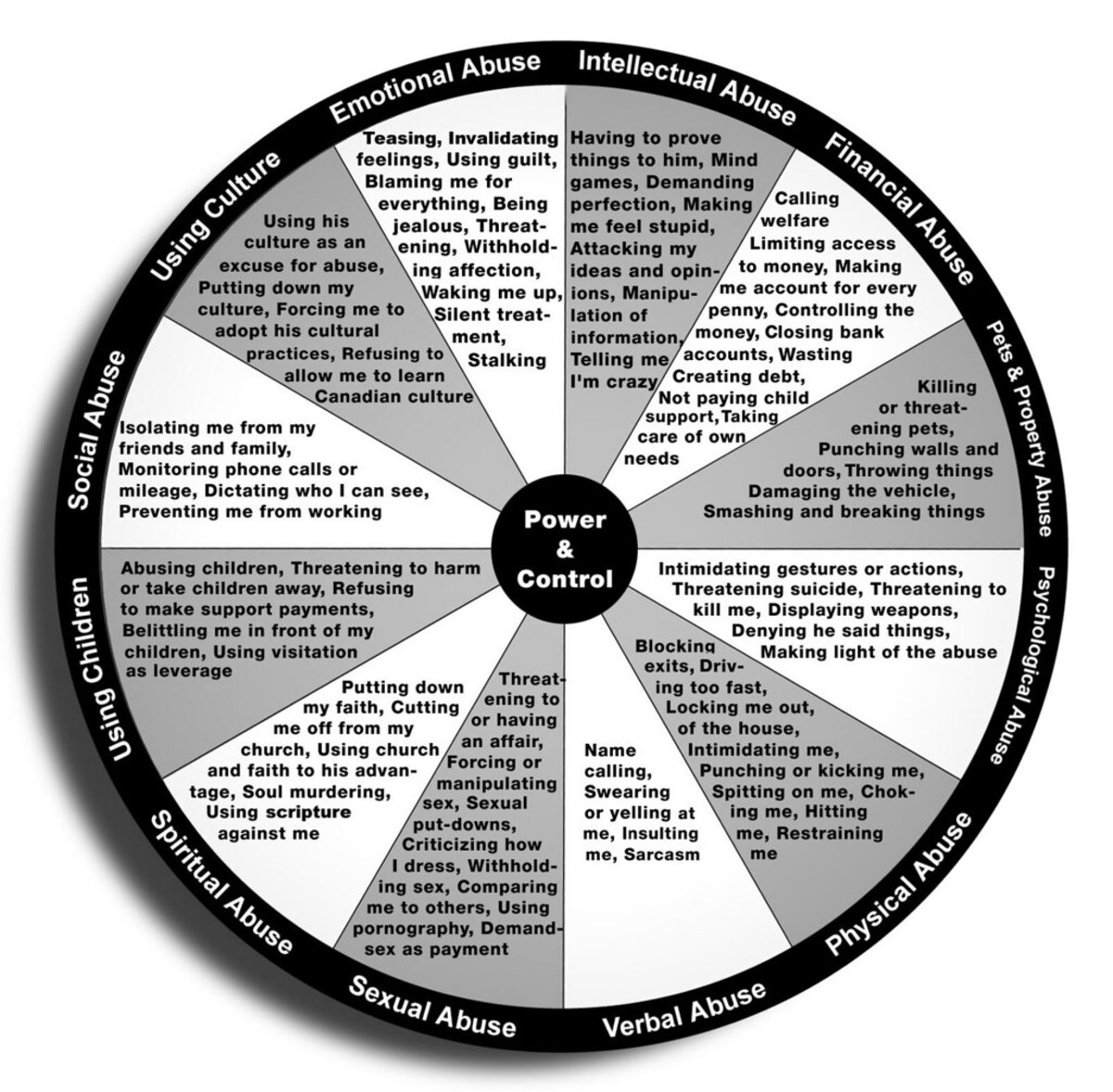Frustrating People - The Passive Aggressive Personality
Passive Aggressive People Make You Frustrated

Passive Aggressive People are Frustrating to Deal With
Why are some people so frustrating to deal with? Why are some people so difficult? There are many reasons. The personality of a person has a lot to do with how we interact with others. Some people are have a passive aggression towards others. Passive aggressive behavior comes in many forms. As a general rule, passive aggression is a non verbal and/or backhanded way of manifesting anger, through negative behavior. Basically, a passive aggressive person feels angry with someone, but doesn’t tell them they are angry.
In a healthy relationship, there is honest communication about feeling upset, irritated, annoyed, frustrated, disappointed, etc. With a passive aggressive person, they never tell the other person they feel this way, they bottle up their feelings and let it come out in through sarcasm, and actions that cause the other person to feel the angry feelings, the passive aggressive person doesn’t let themselves feel. They manage their relationships through manipulation. Passive aggressive people communicate in unhealthy ways.
A passive aggressive person will give angry looks, resist the requests of the other person, put up barriers, and create confusing feelings in the other person. To read more about passive aggressive behavior click here.
Passive Aggressive Books
Why Are Passive Aggressive People Frustrating to Deal With?
Reasons why it is frustrating to deal with passive aggressive people:
-
they are not good communicators - they say one thing and really mean to do something else. With a passive aggressive person, it is not necessarily what they say, but what they do, or don’t do. Because they give you conflicting signals you can’t adequately respond to get what you want or to open up communications
-
you can’t rely on them - if they do what you ask, often it is not done well, it is delayed, completely ignored, or done resentfully so that you end up doing what you asked them, yourself. They often make you wish you had never asked them to do it in the first place.
-
you can’t have an argument with them because their true desire is to get you angry so they vicariously let their own anger out by watching you. They want to make themselves feel like the victim and make you look like the bad guy.
-
passive aggressive people are manipulative - who is easier to manipulate than people pleasers. They are experts at pushing people’s buttons and eliciting reactions that get them what they want. People pleasers often have trouble setting boundaries. If you are a people pleaser you will try to help them and do what they ask. You may avoid conflicts with them and you make yourself an easy target for their hostilities. The passive aggressive person is great at creating drama and having it directly affect you.
There are ways to deal with people who are passive aggressive. By understanding that their anger comes from their own childhood and situations they had to deal with. None of this is your responsibility.
Passive Aggressive Person is an Angry Person
Dealing with a passive aggressive person is very difficult. What makes it even more difficult is that you often don’t know why you are having a hard time with this person.
People have all different personalities and all different ways to deal with their emotions. A passive aggressive person only knows to express their anger in an indirect manner. They are really unhappy people who don’t want to deal with their own feelings. This can be confusing and frustrating when dealing with people like this.
A passive aggressive person resists your requests in unspoken ways. They are high maintenance people who may sap the energy from you, if you are not self aware.
Passive Aggressive Behavior

Dealing With a Passive Aggressive Person
If you make yourself a convenient target for their negativity, things will be more difficult and less satisfying for you. Dealing with a passive aggressive person requires you to develop a thicker skin so they don’t have the ability to set you off. When dealing with a passive aggressive person it is very important ot stay calm, be aware of how you are feeling, keep your voice steady and neutral, and try your best to not be reactive to the things they say. The less reaction you show them, the less power their passive aggressive behavior has over you.
Empathy works very well when dealing with a passive aggressive person. It can work well to disarm them. By acknowledging that they are probably frustrated by whatever is bothering them, and how difficult it must be for them may help to open them up a little and take away some the hostile feelings they don’t know what to do with. It is very important to be assertive and clear about what you expect and that there are consequences if they don’t meet what you expect of them.
Make sure everything is clear and very well spelled out. Don’t be emotional, passive aggressive people don’t understand their own emotions so they wouldn’t understand yours. Be even toned, levelheaded, and factual when dealing with them so they don’t have a way to put you on the defensive.
Passive aggressive people are afraid of authority figures. They also resent authority figures. Whether you want it that way or not, in their mind you are that authority figure they were never able to deal with when growing up. By acting in a firm and controlled way towards them,are in a sense fearing you. If they can’t get a rise out of you, they have no place to let their anger out through you.
Because their own feelings are so difficult for them, they try to make things more difficult for you. Their own anger, which is stifled and held back to avoid confrontations with people have a lot of negative self talk with themselves.
Honest Relationships

Can You Have an Honest Relationship with Someone Who is Passive Aggressive?
Confrontation can be respectful, but they don’t know how to let their feelings out. By hiding them, they think they are keeping them under control. They appear to the world as though they are nice people, but for those who have to deal with them, a passive aggressive person is one of the most difficult personality types.
Passive aggressive behavioris usually a symptom of deeper problems, poor ego, other psychological disorders, and fear of confrontation.
Being in a relationship with a person who is passive aggressive can be confusing. It happens because they don’t feel comfortable enough to share their feelings with the other person.
Unresolved childhood issues are often repeated in adulthood.The anger they couldn’t take out on their parents, they may be trying to take out on you. We all have unresolved feelings. The very feelings that hurt us as a child are comfortable to us. Even though they may feel uncomfortable, we are attracted to them because they are feelings we know. We always go where we know because the familiar attracts us, even if it is negative.
A person with passive aggressive behavior disorder makes it difficult to maintain an honest relationship with someone else, for many reasons, one being a closing off of true communication. When people are not willing to talk about their true feelings they will act them out destructively.
In difficult situations combined with an inability to express their feelings and needs, their own anxiety may kick in or their feelings may come out in physical responses such as headaches or stomach issues. Their own growing resentment for even minor annoyances may be acted out in non direct, passive ways.
These could be in the form of infidelities, sexual withdrawal, emotional withholding, sarcasm, or other negative patterns of behavior. Avoidant personalities may become pathological liars. It starts out as a way to avoid truths or circumvent uncomfortable situations. They may deny that they are at fault for anything. They have selective recall about events, they may twist facts and make you feel responsible for the events that occurred.
Relationships and Passive Aggressive People
People who are passive aggressive would do much better if they would learn to feel angry. They think negatively. Anger is powerful emotion. Through self awareness about their needs and not being able to express their own feelings adequately, they don’t even realize they are angry. It is impossible to communicate with someone who doesn’t realize there are even angry.
Their feelings confuse themselves, Passive aggressive is a pattern of behavior.
Emotional Abuse and the Passive Aggressive Person
People who are passive aggressive by nature have difficulty being honest and open about feeling vulnerable. At the core of themselves, they look to avoid feeling vulnerable and use passive aggressive tactics to manipulate other people into meeting their needs. A passive aggressive person looks for people pleasers.
A passive aggressive person becomes deeply invested in being viewed as being above reproach. Men and women can be passive aggressive, but men display this type of behavior more often. Their abuse is more often verbal than physical. Afterwards, they may try to tell the other person they are too sensitive, which has a way of invalidating your own feelings. By delivering their message in a veiled way, it makes it hard for you to respond to their comments. You don’t even realize you have been deeply wounded, and they avoid being accountable for their own words and the ensuing reaction that you have.
Their destructive pattern of behavior falls into the category of emotional abuse. It causes feelings of betrayal, negative emotions, and a waste of energy that does nothing to build healthy and positive relationships.
When the behavior is persistent, repetitive, and a way of behaving in nearly all situation, passive aggression is considered a personality disorder.







